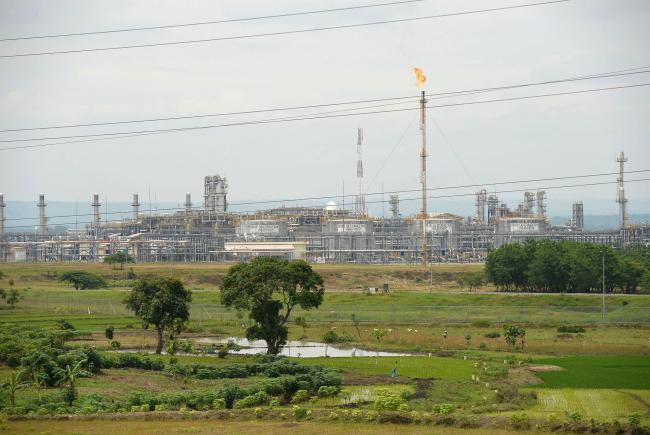(Bloomberg) -- Oil’s rebound from the biggest price crash in a generation is sparking another revival: the use of cheaper, dirtier fuel in Southeast Asia’s two most-populous nations.
Indonesia has sought to buy more lower-quality gasoline so far this year than the whole of 2017, while the Philippines is set to resume imports of higher-sulfur diesel after two years. The nations are embracing such supplies once again as crude’s recovery exacerbates economic pain and boosts inflation, threatening to undermine efforts made during oil’s slump to curb pollution.
The shift in focus to lower-cost dirty fuel and away from the pursuit of cleaner air coincides with political pressure in the countries to shield the public from rising prices. Emerging markets are grappling with weaker domestic currencies and investors pulling out money, with everything from higher U.S. interest rates to a stronger dollar and the American-Chinese trade war to contagion from the crisis in Turkey posing a threat.
“Both Indonesia and the Philippines are for the very first time facing the pressure of what it’s like to have higher energy costs,” said Richard Gorry, a managing director at industry consultant JBC Energy. “This is an interesting way of getting around it, by asking for lower-quality fuel, but that is a two-edged sword because you have environmental fallout.”
Indonesian President Joko Widodo is reining in fuel prices to cap inflation in a bid to increase his chances of a re-election next year. After a two-year freeze on prices of subsidized fuels, Southeast Asia’s biggest gasoline buyer won’t raise prices for 88-RON gasoline and diesel throughout the year, Kompas reported last month, citing Energy Minister Ignasius Jonan.
Gasoline Purchases
PT Pertamina, Indonesia’s state oil giant, has sought more than 84 million barrels of 88-RON gasoline so far this year via tenders, versus about 62 million for the whole of 2017, data compiled by Bloomberg show. By contrast, tenders to buy 92-octane grade slid 45 percent. A fuel with a higher octane number improves the performance of car engines and causes less pollution.
In the Philippines, where inflation is at the highest in five years, the government this month told its oil companies to supply Euro 2-compliant diesel to transport and industrial users, an about-turn from the higher Euro 4 standard used since 2016. While the Euro 2 fuel -- with 500 parts per million of sulfur -- is more polluting than Euro 4 that has 50 ppm, it’s cheaper by about 25 to 30 centavos per liter, government data show.
The fuel downgrade means the country needs to buy the lower-quality grade from overseas as its refineries only produce Euro 4 fuel, with no Euro 2 imports made since January 2016.
The net buyer of diesel wants to import Euro 2 diesel by October, said Rino Abad, a director at the Department of Energy. If the plan goes ahead, the Philippines will be the first Asian country to move from higher emission standards to a lower one, said Den Syahril, a senior analyst at industry consultant FGE.
Jeepney Fuel
The country wants to offer a cheaper option to users such as jeepneys and buses to help shield them from higher fuel costs, said Abad. Local diesel prices climbed about 23 percent this year, government data show. Its central bank this month vowed to take all policy actions to tame inflation. Every one percentage point gain in global oil prices boosts the Philippine consumer price index by 0.03 percent, the bank estimates.
“Making it cheaper could help to cool down inflation, although I’m not certain how effective it will be,” said Weng Inn Chin, an analyst at FGE. “Even if the specification change is implemented, it is probably going to be a temporary move, and specifications should move back to Euro 4 in a couple of months.”
